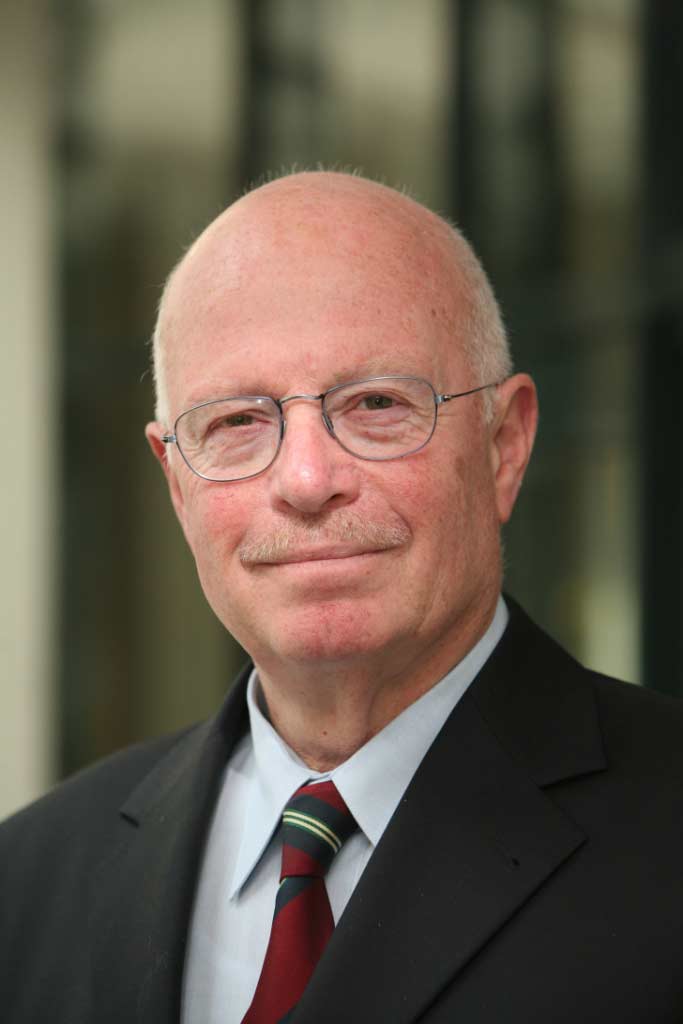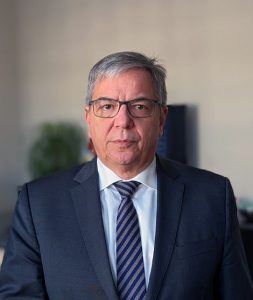My memory of the origins of the Michelsberg Memorial of Names goes back to the mid-1980s. From the very beginning, the project of commemorating the Shoah was influenced by an historical particularity in the relations between the city and its Jewish citizens. It was inspired by the mutual desire to promote and strengthen the friendship between the state capital Wiesbaden and its Jewish community. In line with the results, and somewhat proud of what has been achieved, I therefore look back on a long process of reflection, discussion and argumentation, which for me began on November 9, 1984: It was a cold afternoon and a not particularly dignified memorial hour at the Michelsberg. The street noise prevented any attempt to speak. After the event, we, i.e. the then Lord Mayor Dr. Hans-Joachim Jentsch and I, talked about the possibility of making the names of the Wiesbaden victims of the Shoah accessible to the public, possibly even at this place. A few weeks earlier, Dr. Jentsch had brought a specially prepared memorial book to Yad Vashem in Jerusalem.
Subsequently, the project was pushed forward—sometimes more, sometimes less—and always with the involvement and participation of the Jewish community. At the suggestion of then city councilor Jörg Bourgett, we—my wife Daniela and I—some time later twice photographed the large book in Yad Vashem containing the previously known names of the Wiesbaden Jews murdered during the Shoah and brought the copies with us.
The idea of the Michelsberg as a place of remembrance remained. Lord Mayor Achim Exner, for example, even considered rebuilding the synagogue at the site during his time in office. The Jewish community was critical of the plan, pointing out that while a destroyed building could be replaced by a new magnificent one, the Jewish people who were murdered at that time could not. The creation of a memorial of names seemed the more appropriate course.
Lothar Bembenek, a founding member of the Active Museum Spiegelgasse in 1988, was already intensively involved with the history of the Jews in Wiesbaden. In November 1988 I received from him an extended list of names of Jewish Nazi victims from our city.
In 2000/2001, the topic “Name-Commemoration on the Michelsberg” was taken up again in connection with the imminent demolition of the high bridge there. Rita Thies, then head of the Department of Culture, invited the Jewish community to a discussion. The then chairwoman of the Active Museum Spiegelgasse Dorothee Lottmann-Kaeseler was also present.
The first ideas were developed, which, based especially on the ideas of the representatives of the Jewish community present, already bore a resemblance to the memorial realized in 2011.
In 2006, the construction of the new memorial at the site of the synagogue on the Michelsberg was initiated. From that point on, the then head of the city council, Angelika Thiels, of blessed memory, energetically drove the project forward at the head of a working group. She—as well as Dietrich Schwarz, then managing director of the Urban Development Company (SEG)— earned lasting merit as an energetic manager of the sensitive project,.
During all this time, I had the opportunity to get to know and appreciate people from the municipal council, the city council, the political parties, the administration—especially the city archives—as well as many other committed citizens. I am grateful for this, all the more so because the project to create a memorial on the Michelsberg was handled for the most part with care.
Spiritually and architecturally, the memorial was successfully created. The commemoration of names at the Michelsberg thus makes what was lost recognizable again.
The names of the murdered Jews remain the visible and thus superior historical evidence compared to the rhetorical confessions in the past and present.
With full justification, we, the members of our Jewish community, see it as our duty to be preservers of the traditional identity of German Jewry and at the same time citizens of our city and of this state.
The history of the Jews in Wiesbaden continues in a lively, traditional and innovative way.
Dr. Jacob Gutmark
Member of the Board of the Jewish Community Wiesbaden


